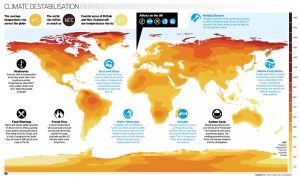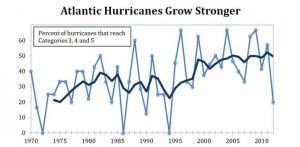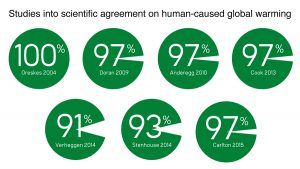Myth: Zbigniew Jaworowski disproved (insert random climate change denier argument about glacial studies and ice cores here)....
Climate Change
Myth: Climate change will have some benefits. Climate alarmists need to take a breath and weigh the...
A recent article published by Nature Geoscience states that limiting warming to 1.5 °C is feasible with current...
Fact: This is the wrong question to ask, since it assumes that one variable (in this case,...
The “97% Climatologist agreement” claim is based on the fact that 97% of related a articles published...







